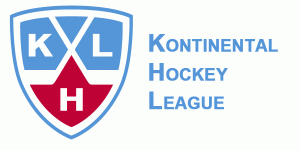As the KHL continues its quest for global dominance, one of Finland’s most renown franchises is slated to join the Russian-based league for the 2014-15 season. The controversial move has been much talked about around the hockey world as it has major ramifications for the Finnish SM-liiga, Jokerit and KHL as well as the sport in general.
What it Means for the KHL
 From the KHL’s perspective, this is a major acquisition. Although the KHL has poached teams from other leagues and has expanded to several countries including, Croatia, Belarus, Ukraine, Latvia, Kazakhstan, Slovakia and the Czech Republic, it hasn’t until now, reeled in a big fish from Western Europe. Jokerit is one of Europe’s most popular and most successful hockey teams, with an average attendance of 9,820 last season (while playing in the Hartwall Areena that has a maximum capacity of 13,349) and having won six Finnish titles.
From the KHL’s perspective, this is a major acquisition. Although the KHL has poached teams from other leagues and has expanded to several countries including, Croatia, Belarus, Ukraine, Latvia, Kazakhstan, Slovakia and the Czech Republic, it hasn’t until now, reeled in a big fish from Western Europe. Jokerit is one of Europe’s most popular and most successful hockey teams, with an average attendance of 9,820 last season (while playing in the Hartwall Areena that has a maximum capacity of 13,349) and having won six Finnish titles.
Having a franchise in the capital of hockey-mad Finland will provide the KHL with an exceptional platform to display its product in order to grow its reach and increase its impact on hockey. If J0kerit proves to be successful in its transition to the KHL — both fiscally and from a competitive standpoint — they could be the catalyst for other notable Western European hockey clubs to join.
If the KHL truly hopes to be a Pan-European hockey league, it’ll most definitely need to attract (more) teams from major hockey countries like Sweden, Finland, Switzerland and Germany. Without having teams in these regions, the KHL will continue to struggle for legitimacy outside of Eastern Europe. Once a footprint is established in developed hockey markets, the KHL could then set its sights on major markets such as London and Paris as a way of both driving revenue and growing the game.
The NHL has fore a long time contemplated crossing over the pond into Europe. If the KHL proves successful in its own expansion, this could be just the nudge the NHL needs to get moving on its international plan.
What it Means for Jokerit
The move hasn’t all been positive for Jokerit. The fans in particular have been uneasy over the move, to say the least. Fans have been protesting Jokerit’s move to the KHL by displaying vulgar signs, threatening to surrender their support for the club and even burning jerseys.
A lot of the disdain has been directed toward Jokerit chief owner Harry Harkimo. Harkimo is known as a hard-lined businessman who has a shrewd attitude to see all his ventures through. “I’m not the most popular man in Finland,” Harkimo said during an interview with The Globe and Mail. “[Jokerit’s departure] is a loss for the [SM liiga], but this is part of globalization and a business plan. I can’t think about what others think.”
From a hockey standpoint, Jokerit’s transition to the KHL should prove as a case study for other franchises looking to make the same leap. Jokerit has ordinarily performed well in the SM liiga — even capturing the regular season title last year — so fans will expect the same success in the KHL that they are accustomed to.
Arto Palovaara of The Lion Chronicle believes that Jokerit need to acquire high-class players that have skills superior to most in the SM liiga, and to expect a lot of roster turnover in the offseason as Jokerit retools their roster for the KHL. As far as on ice performance, Palovaara suggests Jokerit will win some games next season, but their shouldn’t be expectations beyond finishing in the middle of the standings.

Financially, a lot has been made of how teams in the KHL conduct business. For starters, it won’t be cheap for Jokerit to travel as far as Vladivostok — the KHL’s eastern-most team, and much more expensive in comparison to taking bus trips around Finland.
However, Jokerit’s ownership — which now includes a group of billionaires with personal ties to Russian President Vladimir Putin — are very stable financially and can certainly absorb a blow to the pocketbook. While the move to the KHL may turn away some of the current fanbase, playing in what most consider to be the second best league behind the NHL, should give the team increased exposure, in turn generating more revenue.
It’ll certainly be fascinating to see how all of this plays out, especially if Jokerit thrives in its new league, and the NHL begins to feel threatened. Jokerit may very well be a pawn in the KHL’s quest for global supremacy.